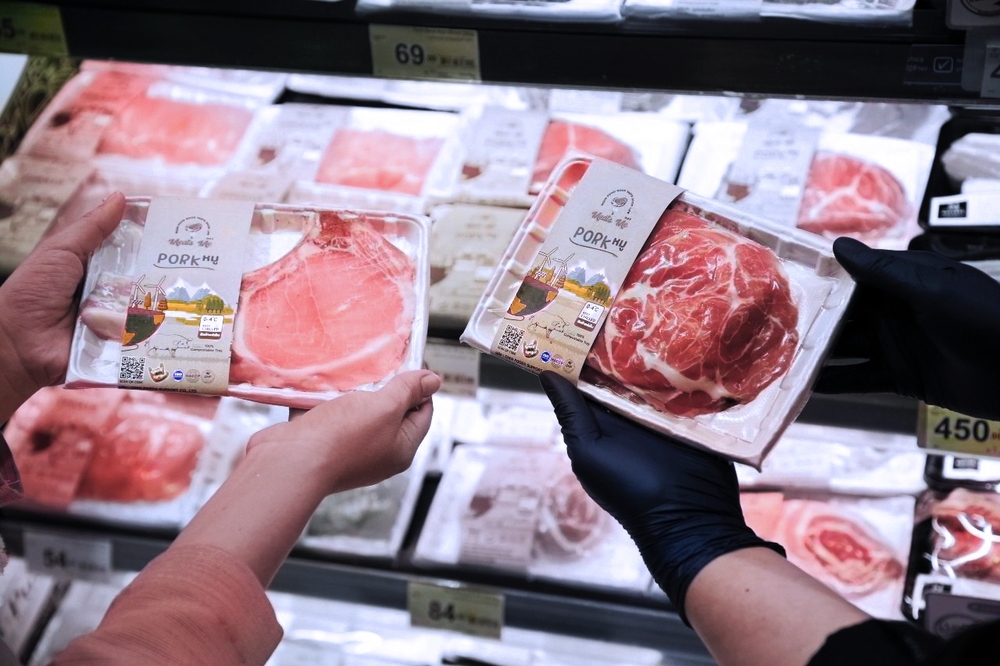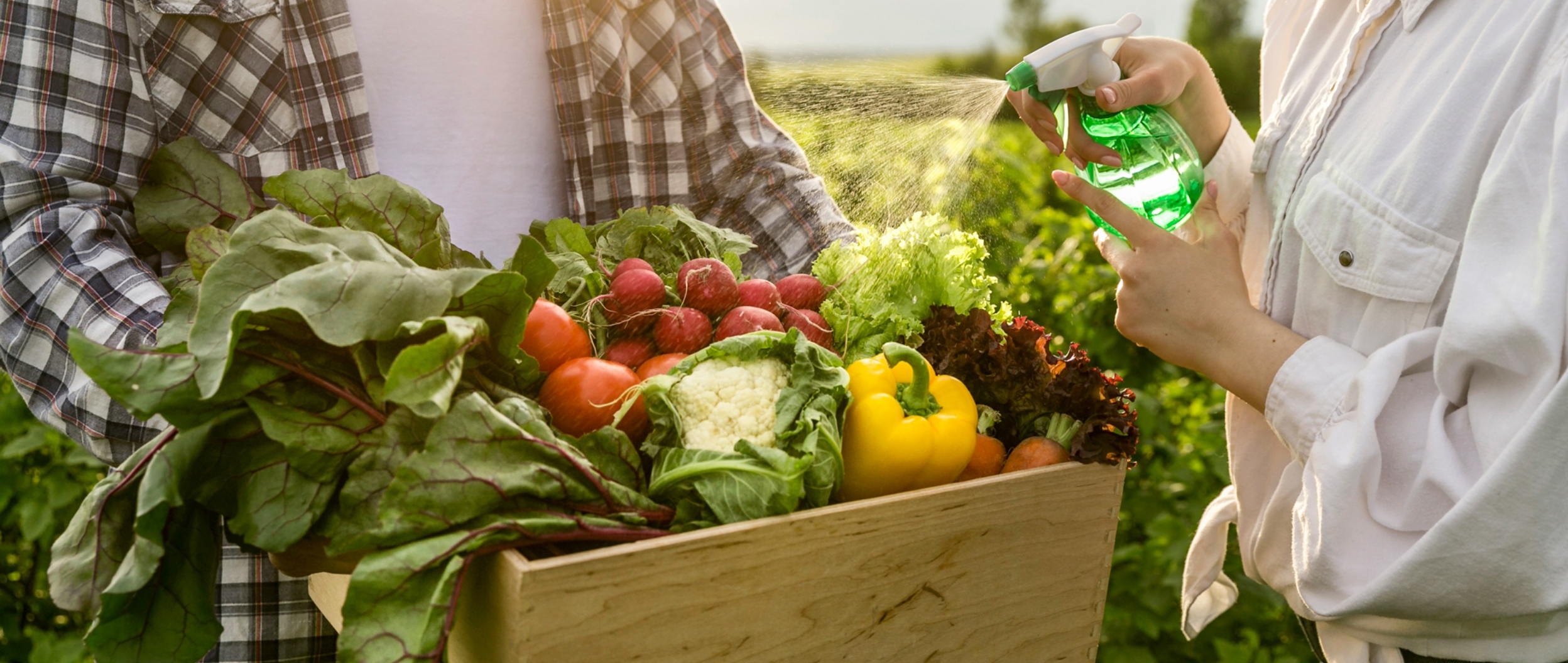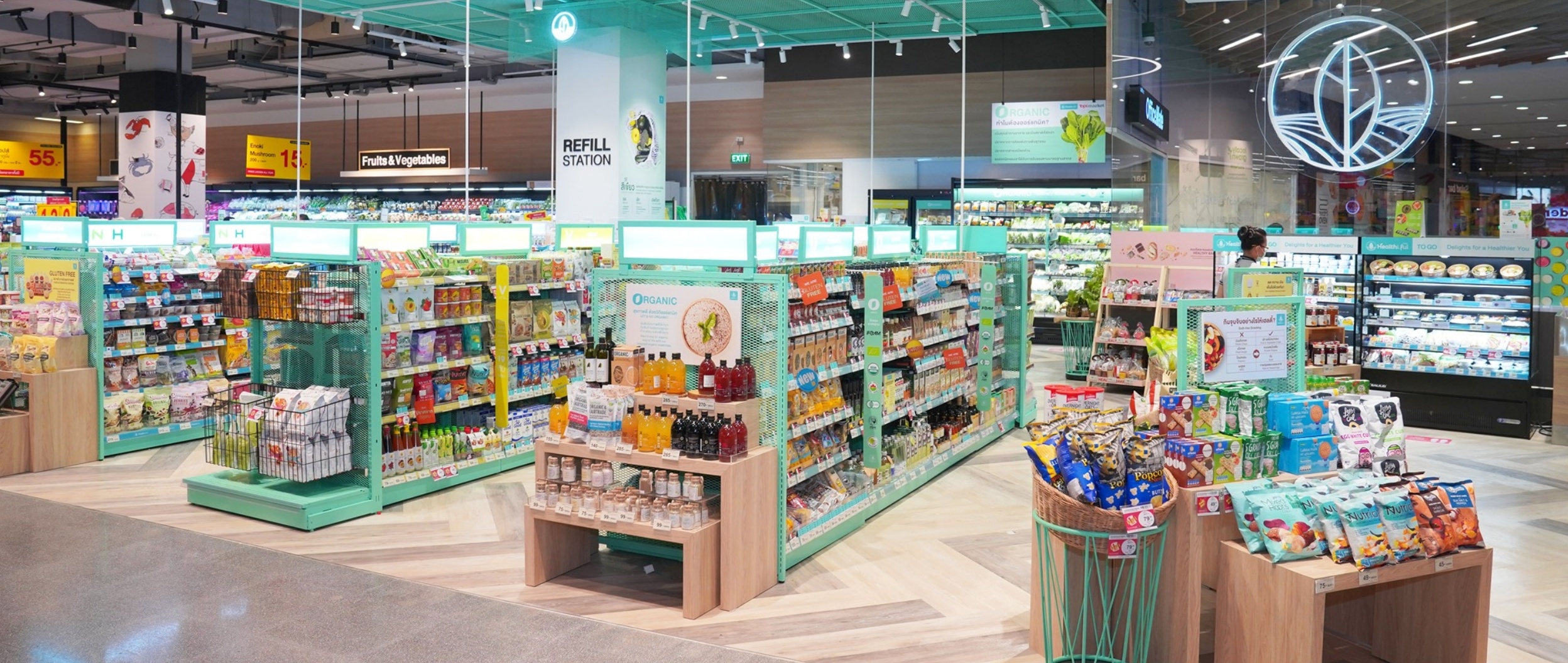Responsible Sourcing
Challenges and Opportunities
Responsible sourcing is a complexed process to ensuring ethical and transparent procurement practices across the supply chain. This involves traceability and complying with diverse legal and international standards. Additionally, sourcing sustainable raw materials and adopting environmentally friendly production processes may lead to increased costs. However, as consumer and investor expectations for sustainability continue to grow, Central Retail continues to refine its strategies to maintain competitiveness and strengthen stakeholder trust.
Despite these challenges, responsible sourcing presents significant opportunities for long-term business growth. Procuring materials from certified sources that meet environmental and ethical standards enhances product quality, strengthens customer confidence, and reinforces Central Retail’s brand reputation. Furthermore, prioritizing products with recognized sustainability certifications aligns with global market trends that emphasize ESG principles, leading to competitive advantages and sustainable business development.
To support responsible sourcing, Central Retail has established a Sustainable Procurement Policy and implemented measures to promote transparency and sustainability throughout the procurement process. These efforts include providing information about the producers and products to customers, selecting business partners that align with international standards, and fostering collaborations with industry stakeholders to enhance responsible sourcing practices. By integrating these initiatives, Central Retail aims to mitigate regulatory risks, support responsible consumption, and generate long-term positive impacts on the economy, society, and the environment.
Management Approach
Central Retail is committed to responsible sourcing by integrating sustainability principles into its procurement processes, ensuring that the sourcing of products and raw materials aligns with environmental, social, and governance (ESG) principles. Central Retail’s Sustainable Procurement Policy focuses on evaluating and selecting business partners based on their environmental impact, fair labor practices, and respect for human rights. Additionally, Central Retail emphasizes transparency, traceability, and adherence to international standards. To support responsible business practices, it has established a Supplier Code of Conduct, which serves as a guideline for ethical and sustainable collaboration. All suppliers are expected to comply with principles related to human rights, labor practices, environmental responsibility, and good corporate governance.
Product Safety and Quality Assurance Framework
Central Retail is dedicated to ensuring all customers the highest level of food safety through robust quality assurance policies and a comprehensive framework. This commitment is underpinned by the establishment of a Product Safety Committee, the appointment of a Quality Management Representative (QMR) by top management, and a dedicated Quality Assurance Department. To foster sustainable product safety development, the Company integrates global best practices, sound scientific principles, and practical operational procedures.
Throughout its supply chain, Central Retail enforces stringent quality control measures. This includes implementing a management system to ensure that all supply chain partners adhere to established quality assurance standards, alongside comprehensive criteria for supplier selection in line with company policies. Within its retail operations, the Company has implemented a comprehensive quality and product safety management. This management includes plans for supervision, inspection, and follow-up on the quality and safety of both company-produced and sold products, extending to suppliers whose production and distribution processes occur at the point of sale. Ultimately, the Company, in collaboration with its suppliers and retail outlets, continuously strives for product quality improvement. This is achieved by facilitating the transfer of knowledge, technologies, and best practices, ensuring optimal hygiene and sanitation at points of sale, and raising awareness concerning product safety and sustainability.
Central Retail has established clear protocols for the quality assurance, safety, and accuracy of product labels for all post-marketing products. These protocols encompass the Company's own brands, direct imports, consignment products, direct-to-store delivery (DSD) items, and every product registered within the workflow system. Procedures include comprehensive assessment of adulteration and contamination, monthly random inspections conducted by external laboratories with ISO/IEC 17025 accreditation, and ongoing legal surveillance of product labels with monthly or seasonal inspections. Furthermore, the Company consistently collects randomized test results from its quality assurance processes within both supply chains and farm fields to further ensure product safety. This ensures that the Company has a management system to prevent defective products and enabling the system to identify and take appropriate measures on potential defects or deviations of quality before delivery of products.
Controls and Audits of the Quality Management System
The Company acknowledges the pivotal role of robust internal control systems in ensuring operational alignment with strategic objectives, legal requirements, and applicable standards. This alignment is systematically achieved through a comprehensive internal audit of the Quality Management System, which encompasses specific audit topics and a structured process. These internal audit procedures are managed by the Internal Audit Department. Key areas of focus include:
- Strategic Planning and Standard Operating Procedures: This involves the implementation of a strategic plan and standard operating procedures for Key Performance Indicator (KPI) monitoring, incorporating corrective actions, and ensuring regular review and updates of regulatory compliance and internal procedures.
- Supplier Quality Assessment and Control: This segment focuses on rigorous pre-vendor audit assessments, factory standard evaluations and quality certification results. It further includes clearly defining vendor responsibilities within contractual agreements, ensuring ESG (Environmental, Social, and Governance) compliance with the Company’s supplier code of conduct, and review post vendor evaluation including action plan for under-performance vendor.
- Product Quality Inspection and Control: This covers the execution of comprehensive product assessment plans across all categories. It ensures that product testing criteria align with regulatory requirements, establishes stringent controls over goods receipt at delivery points, involves the screening and retention of product safety and quality certifications, and restricts unauthorized editing or changing of product master data.
- Product Returns and Defects Management: This area emphasizes the implementation of timely corrective actions and reporting for rejected or sub-standard products. It also drives the continuous improvement of service quality through dedicated action plans.
These internal audit procedures are managed by the Internal Audit Department, drawing insights and data from every business unit.
Central Retail had successfully undergone with third-party verification and demonstrated compliance with the requirements of Food Safety System Certification (FSSC) 22000. This certification specifically applies to the scope of its receiving, storage, and distribution operations for chilled and frozen food products. In addition to requirement of GHPs, HACCP and FSSC 22000, the Distribution Centre also holds an ISO 9001:2015 certification for its Quality Management System. This encompasses the provision of receiving, storage, and distribution services for a broad range of products, including dry food, beverage, tobacco products, non-food items, pharmaceuticals, cosmetics, pet food, and clothing products.
Employee Training and Quality Management System Integration
As part of the Company's training initiatives, the Company offers comprehensive programs designed to equip all relevant employees across various departments with the essential skills and knowledge required for their daily roles, particularly concerning quality management systems (QMS). These training programs cover critical areas such as ISO 9001:2015 requirements and ISO 9001:2015 Internal Auditor certification. This ensures employees fully understand their responsibilities and daily actions, enabling them to contribute effectively to the Company's quality objectives and continuous improvement efforts.
Communication Channels
To enhance communication regarding product quality and safety measures, and to improve consumer access to information for raising concerns about defective products, the Company has implemented various dedicated communication channels. These channels include:
Contact Centers: Tops contact center 1467, daily 08:00 -22:00
Live Chat Support: Tops https://www.tops.co.th/th, daily 08:00 -22:00
Dedicated Website Pages: Cusserv@tops.co.th, Topsonlinecs@tops.co.th, daily 09:00 - 18:30
Social Media Platforms (Facebook page): Tops Thailand/Tops daily/Tops foodhall/Tops Vita/Tops Care/Pet ‘n Me, daily 09:00 - 21:00
Application (Shopee/ Lazada/ Tiktok shop): Top Online/ Tops Vita/ Pet’n Me daily 9:00-19:30
Central telephone number: 02-831-7300, Monday - Friday (except public holidays) 9:00 – 18:00
Eco-friendly Product
In eco-friendly product procurement, Central Retail prioritizes selecting products that minimize environmental impact, emphasizing the use of sustainable materials such as biodegradable packaging and recycled plastics. It also promotes the use of environmentally certified products. Central Retail supports the circular economy concept by encouraging reuse, repurposing, and recycling to reduce waste and environmental impact. Additionally, it collaborates with environmentally certified partners to promote sustainable sourcing. Central Retail has categorized eco-friendly products into six distinct categories as follows:
Environmentally Friendly Product Categories
| Category | Definition | Example Labels |
|---|---|---|
| Health and Safety Products | Products made without synthetic chemicals and with fairness to farmers and workers |
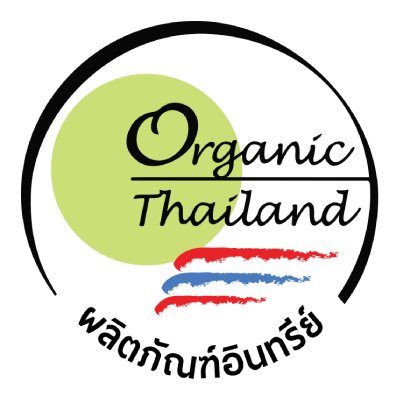  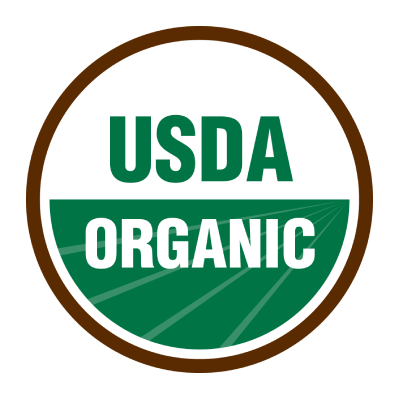 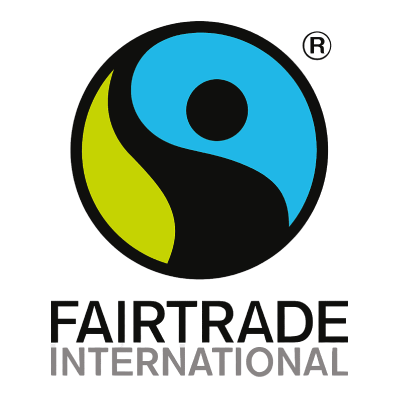 |
| Products Using Sustainable Resources | Products made from natural materials that are renewable or can be replanted |
 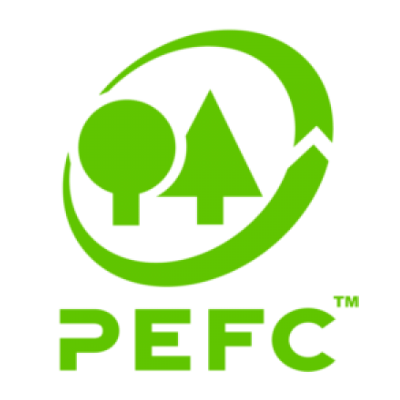 |
| Energy-Efficient Products | Products that consume less energy and are highly efficient |
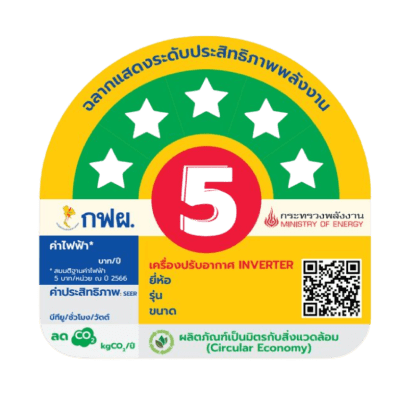  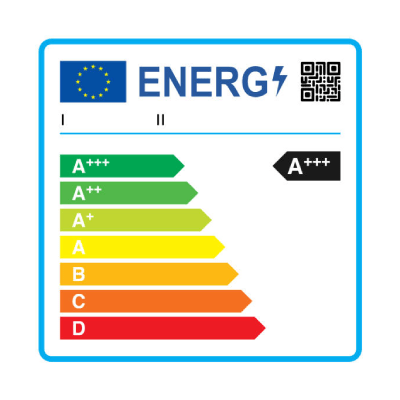 |
| Products Made from Recycled or Biodegradable Materials | Products that use recycled materials or are biodegradable in nature |
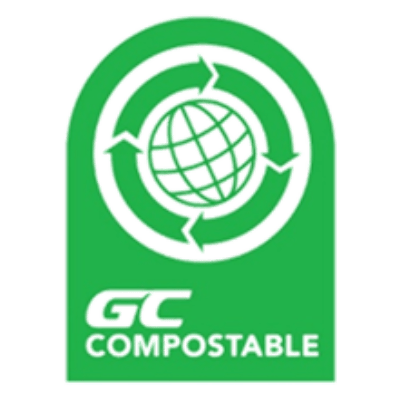  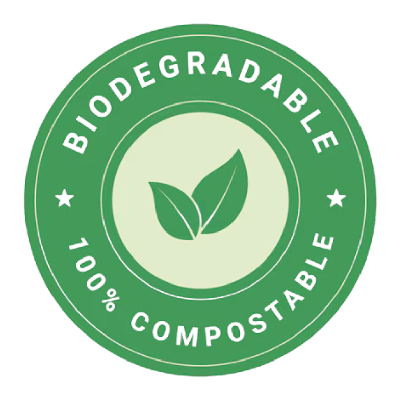 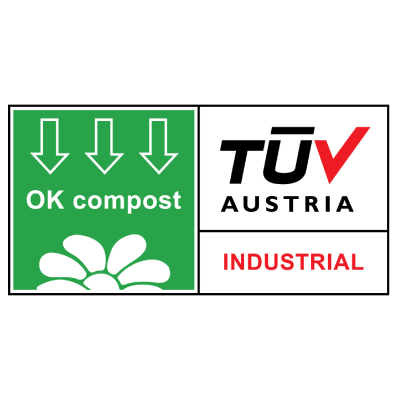 |
| Products That Reduce Overall Environmental Impact | Products that meet environmental production standards |
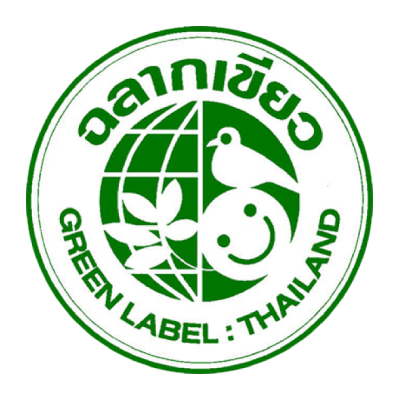 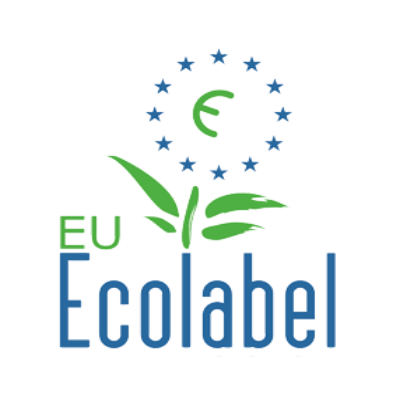 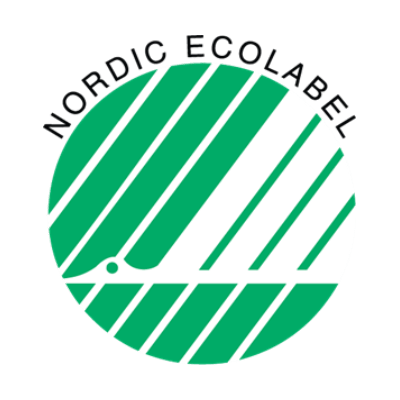 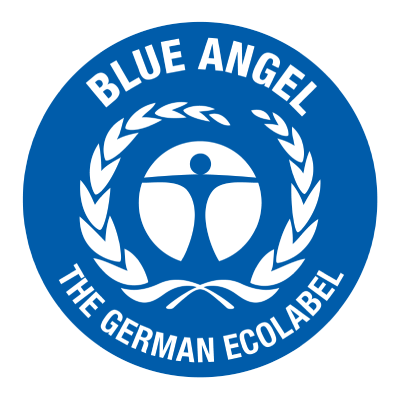 |
| Products with Emission Data and Carbon Footprint Reduction | Products with Carbon Footprint Labels and Lower Greenhouse Gas Emissions across the Production and Use Lifecycle |
   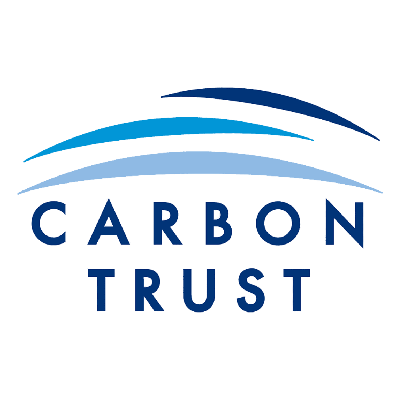  |
In addition, Central Retail has launched special product store named "Healthiful" since 2019 to highlight organic and other healthy product lines. In 2024, the Healthiful store has expanded to 86 stores. Products listed under this store are assessed using the following criterias:
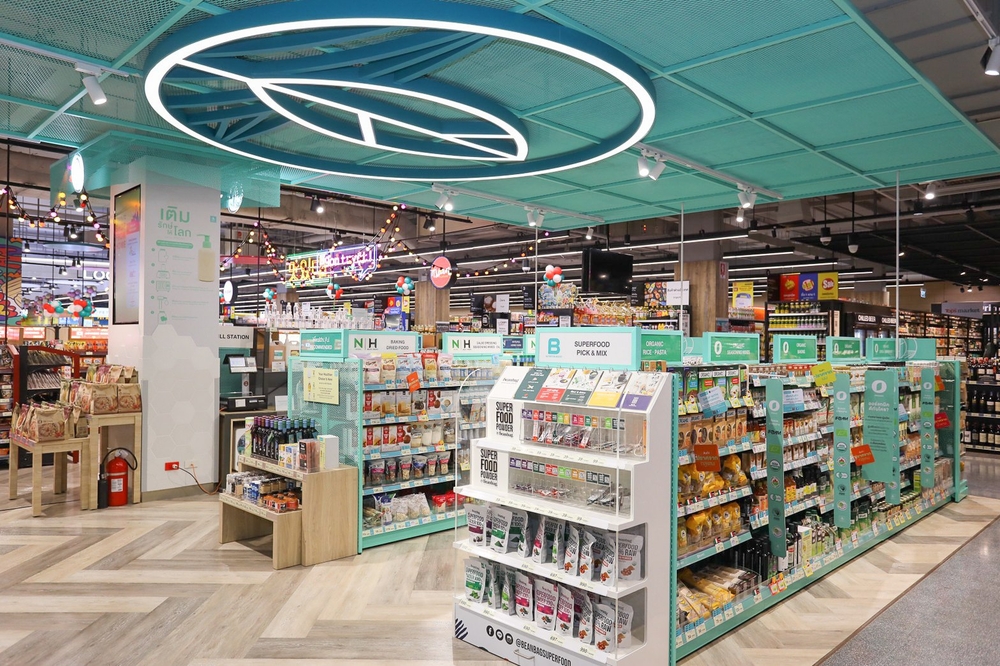
- Quality Certification: Food and Drug Administration (FDA) approved for high production quality.
- Consumer Benefits: Promotes health and well-being.
- Alternative Products: Includes organic, plant-based, vegan, digestive health, high-protein, and ketogenic options.
- Health Restrictions: Products for diabetic patients, gluten-free, MSG-free, preservative-free, cholesterol-free, dairy-free, lactose-free, low-sodium, low-fat, and low-sugar products.
Community and Local Products
Central Retail is committed to supporting local communities and domestic producers while fostering sustainable local economic growth. Sourcing products from communities and local suppliers is a key strategy that not only creates economic opportunities for farmers and small-scale producers but also reduces environmental impact by minimizing long-distance transportation, lowering greenhouse gas emissions, and promoting efficient resource utilization.
To achieve tangible results, Central Retail launched the “Jing Jai Farmers’ Market” since 2018 as a platform for showcasing and selling local produces, OTOP items, and community-made goods developed in collaboration with Central Retail. The core strategy of Jing Jai Farmers’ Market focuses on creating a fair platform that allows farmers and small-to-medium producers to sell directly to customers, without the middlemen, ensuring fair pricing, and fostering long-term sustainability for producers. The initiative also emphasizes product quality and production standards by providing support and guidance to improve product safety, the use of environmentally friendly raw materials, and sustainable production practices. Additionally, Jing Jai Farmers’ Market serves as a model for reducing plastic usage by encouraging biodegradable natural packaging and promoting reusable shopping bags to minimize plastic waste.
Furthermore, Central Retail facilitates direct communication between producers and consumers, allowing communities and farmers to engage with customers, share information about product origins, production methods, and standards, while also gathering feedback for product improvement. Central Retail also plans to expand the Jing Jai Farmers’ Market network nationwide to enhance economic opportunities and community development across the country. Currently, there are a total of 32 Jing Jai Farmers’ Market branches nationwide, offering more than 4,000 products, including fresh fruits and vegetables, processed agricultural goods, handicrafts, and local products. Over 10,522 farmers and small-scale producers have gained access to a fair market, generating more than 250 million baht to the local communities. This platform provides opportunities to increase their income sustainably. The initiative has received positive feedback from both consumers and participating farmers, contributing to better quality of life, stable income, and stronger local economies nationwide.
Jing Jai Farmers' Market
Biodiversity Conservation
Central Retail recognizes the importance of biodiversity in maintaining ecological balance and is committed to the conservation of biodiversity and forested areas. Central Retail aims to achieve No Net Loss (NNL) of biodiversity, create a Net Positive Impact (NPI), and reach the goal of No Net Deforestation to ensure responsible operations.
To ensure this, Central Retail conducts comprehensive biodiversity risk assessments, monitors results, and implements remediation activities across the entire supply chain using the World Wildlife Fund’s Biodiversity Risk Filter Tool (WWF BRF). These assessments help identify and mitigate potential biodiversity impacts. Additionally, Central Retail collaborates with key stakeholders, including partners, business allies, and local communities, to initiate conservation and biodiversity restoration projects.
Central Retail works with organizations such as WWF Thailand, the Thai Organic Agriculture Development Project, and Thai Com Co., Ltd. to carry out initiatives that promote environmental sustainability, including forest restoration, sustainable agricultural practices, and the development of biodiversity strategies aligned with international standards.
| Biodiversity Risk Assessment | |
|---|---|
| Scoping the Assessment |
|
| Collecting Location-specific Company and Supply Chain Data |
|
| Assessing Biodiversity-related Risks |
|
| Aggregating Biodiversity Risks Impacting Business Operations |
|
Project Highlights
Smile Melon Farm Learning Center Project, Ayutthaya Province
The Smile Melon project is in the Koo Sloat sub-district, Ladbualuang district, Phra Nakhon Si Ayutthaya province, covering an area of 47 rai. The project involves 30 households and focuses on transforming traditional rice farming areas into a sustainable agricultural business by cultivating high-quality Japanese melon varieties. These include Asahi (orange-flesh, sweet, crisp, with a fragrant aroma) and Midori (green-flesh, sweet, soft, with a fragrant aroma). The project follows Good Agricultural Practice (GAP) guidelines to ensure that the produce meets market standards. In addition to providing necessary infrastructure and building greenhouses, the project also has dedicated areas for sorting and packaging to maintain product quality. The melons produced in this project are sold at Tops Supermarket, part of Central Retail. In 2024, the project successfully exported over 4,300 melons under the “My Choice Japanese Melon” brand to NTUC FairPrice in Singapore, generating an annual income of 15.2 million baht for the community. The project also promotes community involvement, with over 7,200 visitors annually, including representatives from both public and private sectors. These visits not only support local tourism but also contribute to the distribution of economic benefits across various sectors, fostering regional development.
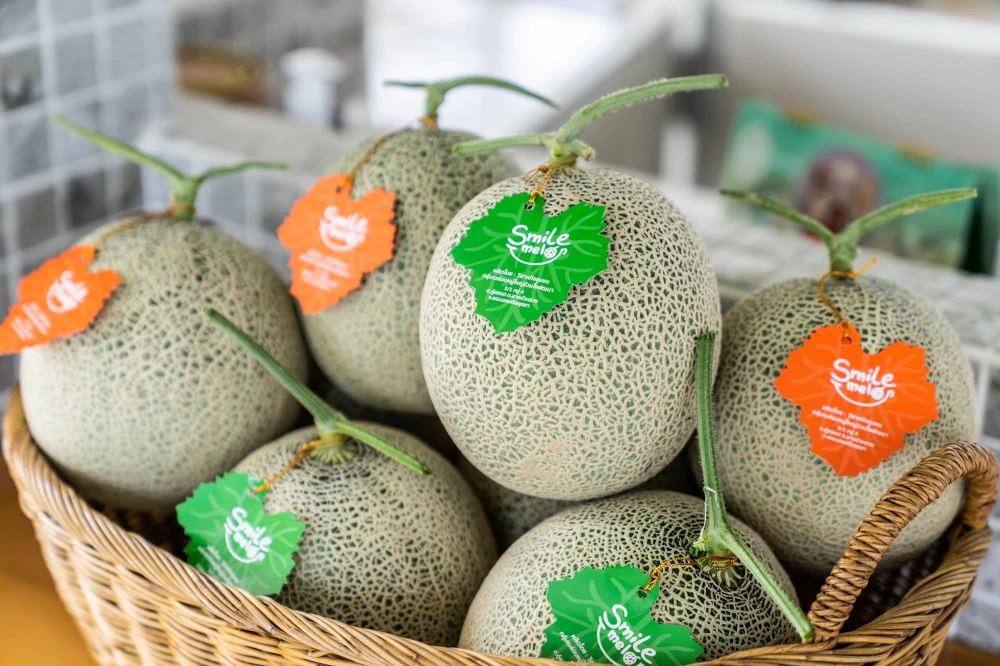
Organic Farming Group, Bua Yai Sub-district, Na Noi District, Nan
In collaboration with local agricultural networks, the Department of Forestry, the Water Resources Information Institute, the Health Promotion Fund (ThaiHealth), and the Bua Yai Organic Agricultural Community Enterprise in Nan Province, this project aims to restore ecosystems, promote responsible resource procurement, and support sustainable community development. The project focuses on restoring green spaces and implementing agroforestry systems. In 2024, the project successfully transformed over 2,500 rai of degraded agricultural land into organic farming areas. These areas combine tree planting with organic vegetable cultivation, soil improvement using biochar, and efficient water management through irrigation systems. The project also promotes knowledge development for creating value-added products from the farm's produce, such as pumpkins, chilies, and various vegetables, which are sold through Tops Supermarket and the Jingjai Farmers’ Market. The project generated over 10 million baht in income for the enterprise and its network, helping to enhance trade opportunities for farmers and increasing consumer access to local community products.
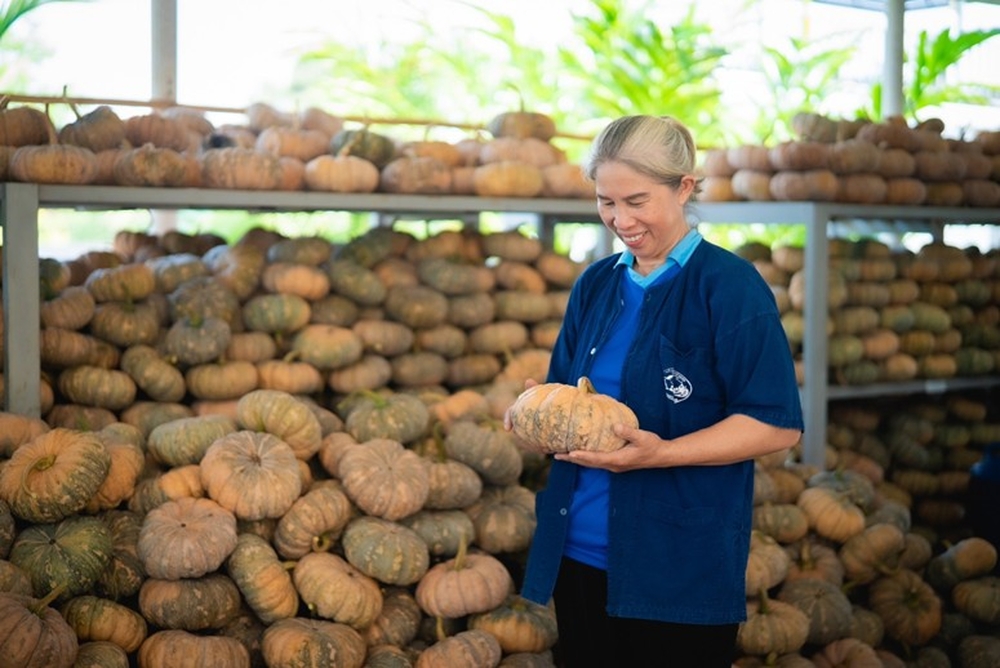
Biodegradable Packaging for Meat Products
Tops, a part of the food business under Central Retail, has partnered with Biodegradable Packaging for Environment Public Company Limited (under the brand Gracz) and the Institute of Food Research and Product Development at Kasetsart University to co-develop and enhance the production of biodegradable packaging. This innovation aims to extend the shelf life of food and reduce food waste.
The newly developed packaging is designed to replace plastic and foam for selected fruits and vegetables, such as tomatoes, mushrooms, chili, jackfruit, baby corn, eggplants, and cabbage. Currently undergoing trials at selected Tops branches, this packaging is expected to be officially adopted for use with similar fresh produce across all Tops stores by 2025. It has been proven to extend the shelf life of fresh fruits and vegetables by more than 7-10 days, thereby reducing food loss which is one of the key contributors to food waste. Tops has already begun transitioning to 100% biodegradable natural fiber packaging in place of single-use foam and plastic for ready-to-eat meals, dried food, and fresh fruits like cherries, in stores both in Thailand and internationally.
In 2024, Tops utilized more than 1,186,000 pieces of Gracz natural fiber packaging for ready-to-eat meals, fruits, and dried foods across over 165 branches in Thailand, and an additional 187,501 pieces at GO! stores in Vietnam. This initiative has resulted in a total weight reduction of over 20.6 tons of plastic waste from entering the environment.
Beyond maintaining freshness and quality, Gracz packaging contributes significantly to reducing plastic waste and encourages customers to make more environmentally friendly choices.
